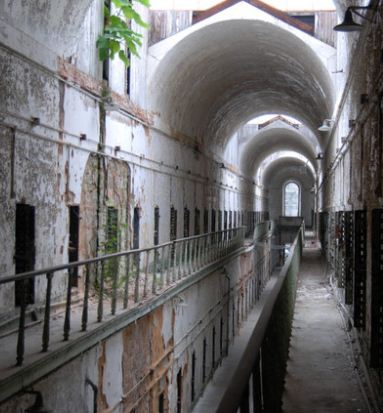Afganistani Christian facing death freed from jail
An Afghan Red Cross worker who was jailed for nine months for converting to Christianity has been released after an intense campaign by international diplomatic missions and Christian activists, an official.
 SAYED MUSSA, a 45–year–old father of six who was imprisoned in Afghanistan because of his Christian faith has been freed and may now be exported to a European country. SAYED MUSSA, a 45–year–old father of six who was imprisoned in Afghanistan because of his Christian faith has been freed and may now be exported to a European country.
Earlier, his wife and children were forced from their home after his arrest and had to flee abroad.
The physiotherapist left a Kabul jail earlier last week and was taken to see Afghan prosecutors, who did not have enough evidence to charge him, said Gen. Abdul Qayum Safi, director of the detention center. He was then secretly released after the government and President Hamid Karzai relented under mounting international pressure.
Aidan Clay, regional manager for International Christian Concern, cheered Mussa's release but said another convert, Shoaib Assadullah, was still in detention in the northern city of Mazar–i–Sharif. Assadullah was arrested in October after allegedly giving a copy of a Bible to a friend.
"It has been encouraging to see the international community, including churches, reporters and government officials in Europe and North America work together for the common goal of freeing Sayed," he said. "Many sleepless nights, prayers and tears have paid off, however, the battle has not yet been won. Shoaib is still imprisoned in northern Afghanistan and fears the death penalty."
Through International Christian Concern, Mussa said representatives of the U.S. and Italian embassies in Kabul visited him in the detention center and offered him asylum. Mussa wrote that after the foreigners left the room, three Afghan officials told him he would be released within 24 hours if he signed a statement saying he regretted his conversion to Christianity. Mussa refused.
"I laughed and replied, 'I can't deny my saviour's name,'" Mussa wrote in the letter. "I am 100 percent ready to die."
Mussa's release is good news but his detention highlights deficiencies in the Afghan legal system, said Leonard Leo, chairman of the U.S. Commission on International Religious Freedom..
"The fact that another individual is currently jailed on similar charges shows that the U.S. government and international community need to seriously engage the Karzai government about protecting the religious freedoms of all Afghanis," he said.
Mussa, a slight man with salt–and–pepper hair and beard, was arrested in late May after an Afghan television station broadcast images of alleged Christian baptisms in Kabul. Proselytizing is illegal in Afghanistan. And baptism is often the point when conversion leads to a converts death.
A number of Afghan Christians fled the country after the broadcast, but Mussa was arrested before he could get away. His case made it into the news after the international Christian community pressed governments to persuade Afghan President Hamid Karzai to release Mussa.
Afghanistan is an Islamic state but the country's constitution is unclear on whether Christian converts are breaking the law. The document says freedom of religion should be protected, but it also states that the ultimate authority in legal matters is the Muslim holy book, the Quran, which condemns conversion.
Referring to Musa's release Mullah Abdul Rasoul, who preaches at a mosque in Kabul said: "Because he has not been killed, this Christian disease will spread among the people, infecting our society. This must be stopped."
Mussa said his move to Christianity began during the Afghan civil war when the house of his neighbour, a porter with eight children, was bombed. (He himself has an artificial leg as a result of landmine blast when he was serving as an army officer in southern Afghanistan.) He saw two foreign women arrive in a white vehicle who were not afraid to search through the rubble despite the presence of armed men nearby. "Many tried to hide, but the women didn't," said Mussa.
He was curious about the women, who were able to find one person alive in the rubble. He later learned they were Christian aid workers who helped Afghans in a clinic.
That prompted Mussa to learn more about the Christian faith. He met a man named Mohammad Hussein, who had recently returned from Iran and was a Christian convert. Mussa pressed him for religious books and other information about Christianity.
In the interview, Mussa said that if he was freed, he would rejoin his wife and children, who are living with a brother in Pakistan. "I want to have a normal life again," he said. "Of course I love all my children. And I'd like to see them."
Comment: It has been said that if one wants to know what an ideology, religion or regime is truly like, then travel to a country where it is in power. Could this be an example of that maxim? |